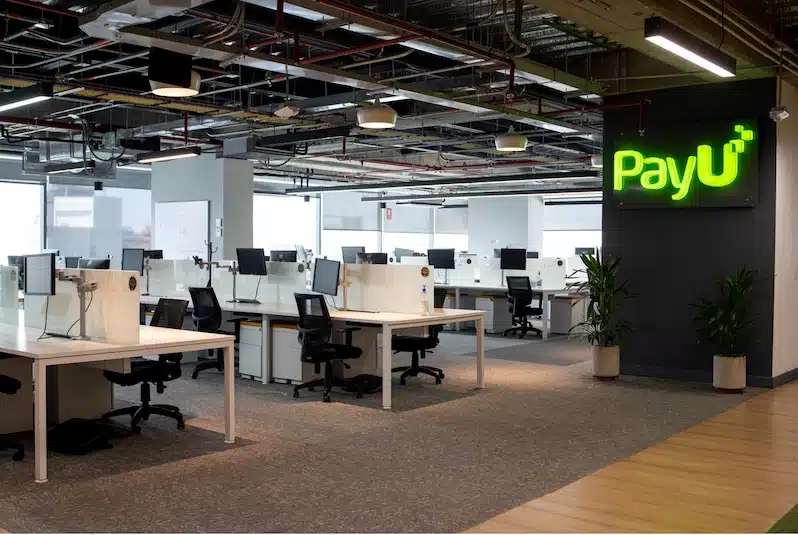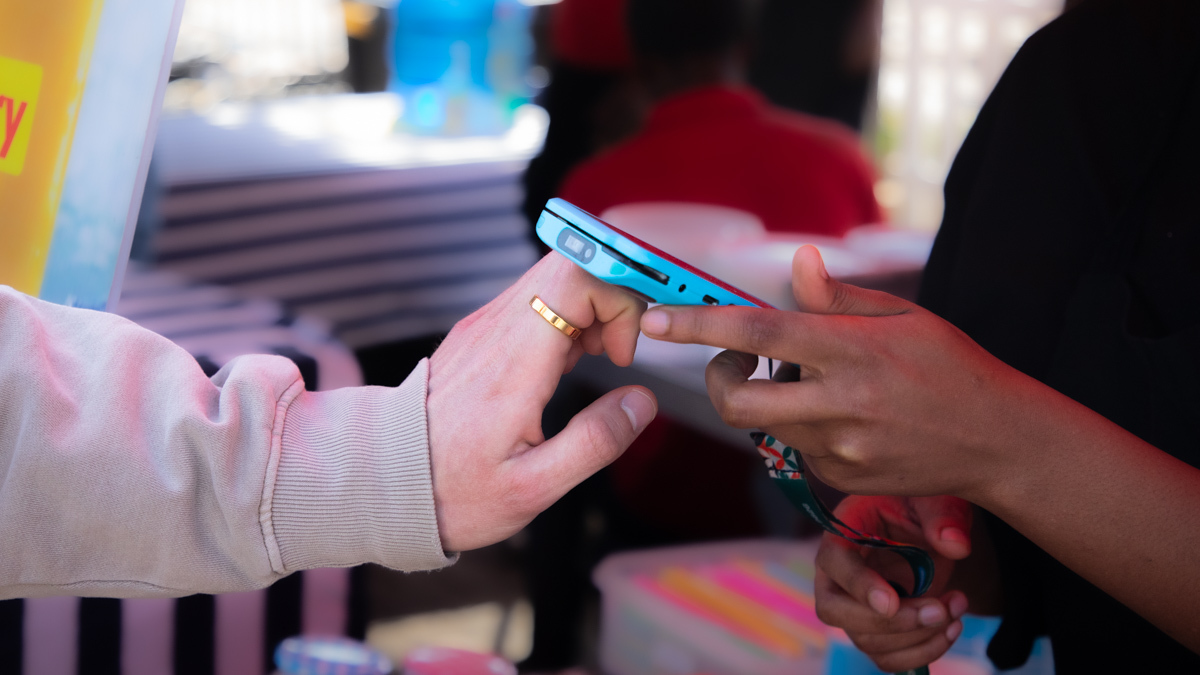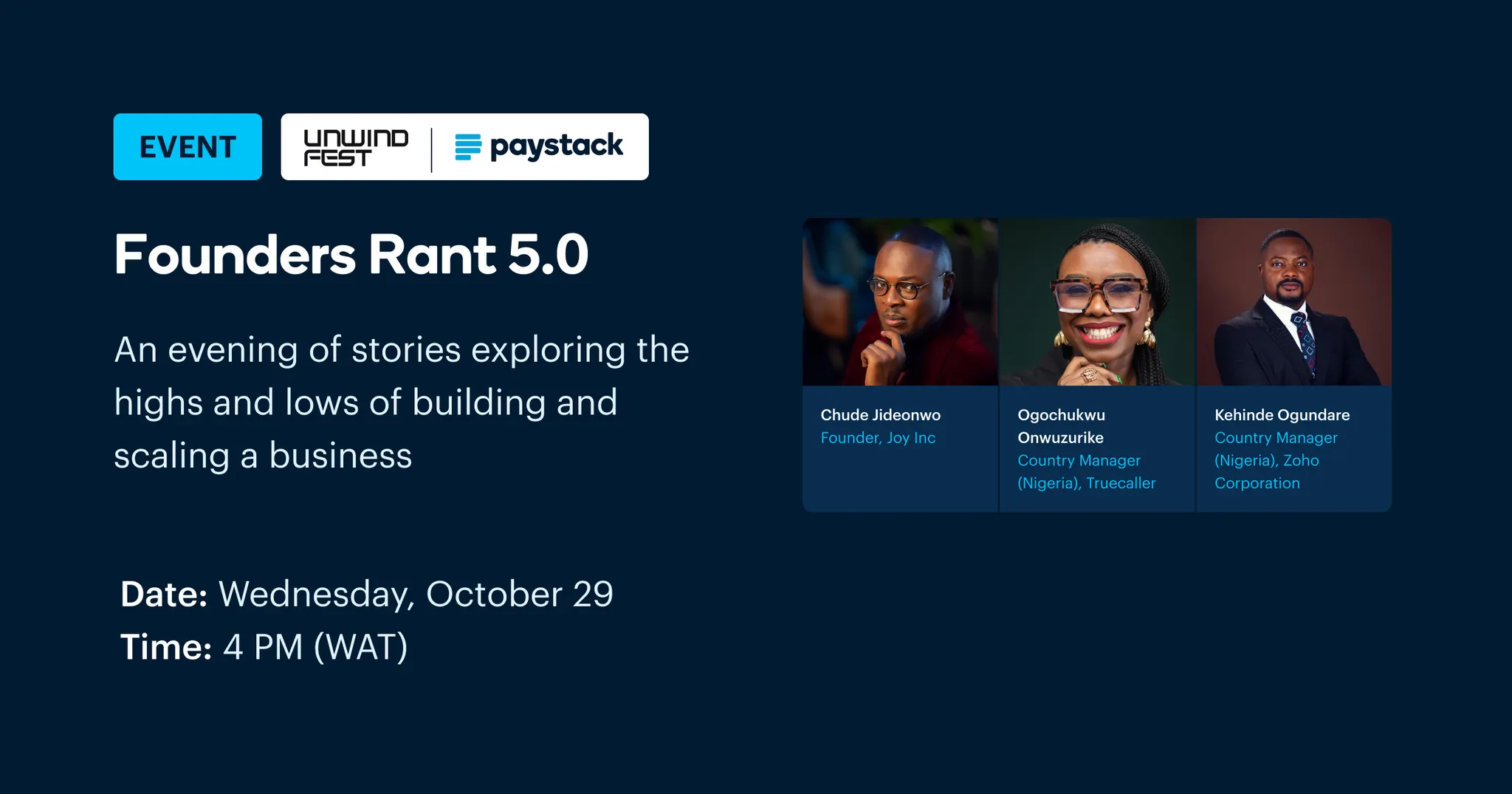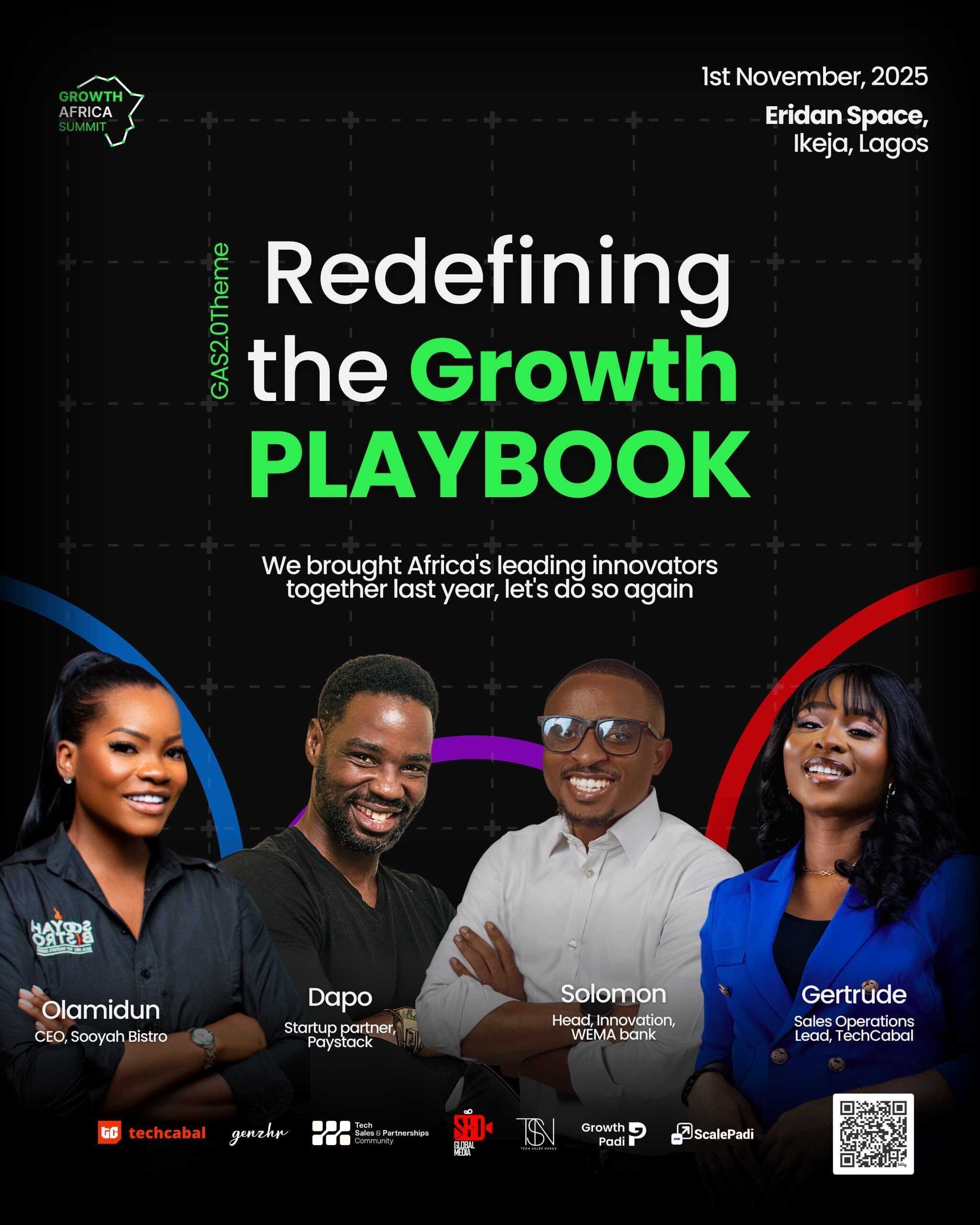- 👨🏿🚀TC Daily
- Posts
- One ring to rule them all
One ring to rule them all
Cool Stuff: Sell your crops without internet.


Good morning. ☀️
Yesterday, AWS sneezed and one-third of the internet caught a cold. The global tech ecosystem spiralled into chaos as services blinked out one after another. AWS experienced two quick-fire waves of outages for the first time this year, and honestly, I can only imagine the stress levels in Amazon’s site reliability war room. Whoever you are, dear engineers, we’re sending you virtual hugs and extra coffee. ☕
Meanwhile, TC Daily’s downtime in 2025? A proud zero.
In other news, stay tuned for today's The Next Wave: Francophone Africa, where Lina Kacyem unpacks what Logidoo is really building after acquiring Ivorian road freight startup Kamtar.
If you missed previous editions of the newsletter, catch up here, or subscribe to get today’s edition straight in your inbox.
Let's dive in.
—Emmanuel

Cloud Computing
When the cloud (AWS) went dark

It was a dark and scary Monday morning when the world woke up to crashed websites, failed payments and frozen social media apps because Amazon Web Services (AWS), the world’s largest cloud provider, had gone down.
What is AWS? AWS is a cloud computing provider that powers much of the modern internet, hosting many online services, including Snapchat, Canva, Standard Bank, some Web3 startups and even parts of government infrastructure. So, when its servers stumbled on Monday the impact rippled globally and loudly across Africa.
The culprit? AWS’s US-East-1 region, one of its busiest server hubs, suffered a configuration error that triggered a massive network failure for over six hours.
Not the first time either. The last major AWS outage occurred on June 13, 2023, when AWS Lambda in the Northern Virginia (US-EAST-1) region experienced significant error rates and slowdowns. Other notable outages happened in December 2021 and November 2020, but none were as global or far-reaching as Monday’s. The service disruption blew the cover off the truth that there may be too much of the world’s internet dependent on too few servers.
Where is Africa’s cloud? Only a handful of hyperscale data centres exist in Africa. AWS and Microsoft Azure run local regions in Cape Town and Nairobi, but true continental capacity is still growing. Companies like MainOne, and Rack Centre are slowly building African-owned clouds. They are smaller, yes, but crucial for digital sovereignty. Because the next time something happens to AWS, the whole world will shiver. Africa shouldn't have to.
eCommerce Without Borders: Get Paid Faster Worldwide

Whether you sell in Lagos or Nairobi, customers want local ways to pay. Let shoppers check out in their local currency, using cards, bank transfers, or mobile money. Set up seamless payments for your global online store with Fincra today.
Startups
Kenya's Central Bank withdraws payment licence of shuttered startup PayU Kenya

When startups shut down, what happens to all their accumulated licences? In Kenya, payment licences can take up to two years to secure, making them valuable and hard-won. Once a business ceases operations, licences are returned to the regulator, meaning the startup no longer meets operational or financial requirements.
Catch up: Bonto, a Kenyan remittance startup, returned its licence after shutting down in September, showing how quickly regulatory privileges can be rescinded.
Another licence revocation case in Kenya: According to the Central Bank of Kenya (CBK)’s filings, the regulator revoked the licence of PayU Kenya, a subsidiary of the Dutch payment gateway company which entered liquidation in September after six years in the market, on October 13. PayU Kenya struggled to gain traction in a market dominated by mobile money services like Safaricom’s M-Pesa.
Between the lines: Operational challenges, low transaction volumes, and insolvency led to its liquidation, prompting the CBK to formally end its authorisation to provide payment services.
Startups that attempt to operate without proper regulatory approval risk severe consequences. Chipper Cash, a pan-African fintech startup, faced restrictions and lost customers when it expanded into Kenya without securing a payments licence.
Kenya operates a tightly regulated financial payments space, and securing a licence can take up to two years, costing up to KES105,000 ($815) for application and authorisation fees, requiring startups to maintain up to KES5 million ($39,000) in minimum capital. A sudden revocation bites startups hard, forcing them to ensure they survive operational hurdles to stay afloat. For these startups, survival itself becomes a key negotiation tactic.
Paga is in USA

Paga is live in the U.S.! Whether you're in Lagos or Atlanta, manage your money effortlessly. Send, Pay, and Bank in both Naira and US Dollars, all with Paga. Learn more.
Fintech
South Africa Vezopay partners with FNB to bring wearable payment rings to the mass market

Locally made jewellery and fintech in one? You have our permission to be excited.
First National Bank (FNB), South Africa’s oldest bank, has partnered with Vezopay, a payment wearable platform that introduced Africa’s first smart ring, to design and build a smart payment ring in South Africa.
Before you start waving your hands at PoS terminals: Only customers of FNB Private Bank and RMB Private Bank will be able to use this feature.
How it works: This ring, which requires no charging, is certified by Visa and Mastercard and powered by Fidesmo's global contactless tech. It connects directly to FNB's virtual card platform and uses near-field communication (NFC) and tokenised encryption to ensure your card details never actually live on the ring. All you need to do is link your FNB virtual card in the VezoPay app, make a fist (yes, literally), tap the PoS terminal and your payment will go through.
Why does this matter? FNB’s digital wallet spend recently crossed $11 billion, with 58% of that through virtual cards. South Africa also has the highest penetration rate for contactless in Africa, accounting for 50% of all digital transactions. The ring rides that wave of contactless adoption in the country.
Zoom out: VezoPay first teamed with Nedbank in 2024, but its launch of locally made payment rings in partnership with FNB takes it mainstream. The cost of these rings have not been revealed yet. However, VezoPay’s rings start from about $145, meaning a locally produced version could significantly drive down prices. If that happens, adoption may be far more realistic for everyday users.
Join Paystack and Unwind Fest for Founders Rant!

Building a company is exciting and hard. Come hear founders share the real stories behind the highs, lows, and lessons of building in Africa. Buy tickets here →
Capital Markets
NGX loses $224 million as eight firms delist in 2025

Nigeria’s stock market has taken a hit this year. Eight companies have exited the Nigerian Exchange (NGX) so far in 2025, wiping ₦330.7 billion ($224 million) from its market capitalisation. While this is only around 0.35% of the exchange's total market, the delistings highlight deeper structural challenges for tech startups weighing a listing: failure to meet post-listing requirements and high regulatory costs.
Companies removed from the bourse included Notore Chemical Industries, MRS Oil, Med-View Airline, Smart Products Nigeria, and others. Notore alone accounted for ₦252 billion ($172 million) of the lost value.
The trend isn’t new. Since 2021, over 30 companies have exited the NGX, erasing more than ₦660 billion ($450 million) in market value. Six firms delisted in 2024, including GlaxoSmithKline, and Union Bank’s 2023 exit alone cut ₦193 billion ($132,000). The cumulative losses show a persistent erosion of market depth, even as new listings remain scarce.
Between the lines: While some of the 2025 exits so far were voluntary, others were forced by the NGX. Smaller companies such as Tourist Company of Nigeria and Union Homes also left the market, showing that regulatory and operational demands are unforgiving. Staying listed is not simple, even for established firms, and liquidity can be lost quickly if obligations are not met.
Tech startups may see the delistings as a signal for shrinking liquidity. Firms like Flutterwave, the Nigerian fintech unicorn, which the Exchange is courting to list, face a market that is strict, costly, and unforgiving. Listing carries risks beyond raising funds; companies must maintain credibility, governance, and operational stability to survive.
With liquidity shrinking at this rate, listing on the NGX is as much about survival as it is about growth.
PalmPay is Showing Nigerians the Smarter Way to Bank

Smarter banking starts with safe banking. PalmPay’s advanced security keeps your transactions safe 24/7. So you can send, save, and spend with peace of mind. With biometric login, transaction PINs, transaction guard, and nightguard and more, your money stays safe in your wallet. Learn more.
COOL STUFF 😎
When people talk about building tech to ‘solve for world hunger’, I’m usually very skeptical, and for good reason too. Nigeria’s version of Silicon Valley often builds first and asks questions later. Crop2Cash allows farmers to buy everything they need and sell the crops they have without internet access.
In a continent where constant internet access is a joke, Crop2Cash allows rural farmers to use technology to achieve their needs.
Shout-out to Michael Egundare and his team.
CRYPTO TRACKER
The World Wide Web3
Source:

Coin Name | Current Value | Day | Month |
|---|---|---|---|
| $107,751 | - 2.67% | - 6.74% | |
| $3,871 | - 4.64% | - 13.48% | |
| $0.1008 | - 9.93% | + 30.91% | |
| $183.83 | - 4.48% | - 23.47% |
* Data as of 06.50 AM WAT, October 21, 2025.
Opportunities
- Bigger, bolder, and more intentional. Following the resounding success of the inaugural summit in 2024, Growth Padi is thrilled to announce Growth Africa Summit 2025 (GAS 2.0) with the trailblazing theme: “Redefining the Growth Playbook.” Set against the backdrop of a fast-evolving entrepreneurial landscape, this year’s summit will challenge outdated strategies and usher in a new wave of radical, resilient, and relevant growth models tailored for African businesses. Register to attend by November 1.
- Got a startup story worth telling? My Startup in 60 Seconds is TechCabal’s one-minute spotlight for founders to share their journey, from vision and challenges to major wins. It’s more than just visibility; it’s a chance to reach investors, potential customers, and Africa’s wider tech ecosystem. Be featured in My Startup in 60 Seconds or explore other TechCabal advertorial opportunities and let the ecosystem hear your story. This is a paid opportunity.
- Calling all AI enthusiasts for Africa’s premier all-expense-paid AI and Data Science learning experience this October, powered by Data Science Nigeria (DSN). The AI Bootcamp 2025 will run from October 20–25 at the University of Lagos, bringing together learners from 36 states and 13 African countries for practical training, mentorship, and collaboration under the theme “AI for All: Democratizing Intelligence and Driving Impact.” Join the free city classes to qualify for the Bootcamp. Register here.


Written by: Opeyemi Kareem and Emmanuel Nwosu
Edited by: Ganiu Oloruntade
Want more of TechCabal?
Sign up for our insightful newsletters on the business and economy of tech in Africa.
- The Next Wave: futuristic analysis of the business of tech in Africa.
- TC Scoops: breaking news from TechCabal
- TNW: Francophone Africa: insider insights and analysis of Francophone's tech ecosystem
P:S If you’re often missing TC Daily in your inbox, check your Promotions folder and move any edition of TC Daily from “Promotions” to your “Main” or “Primary” folder and TC Daily will always come to you.

How did you find today's edition of #TCDaily? |


